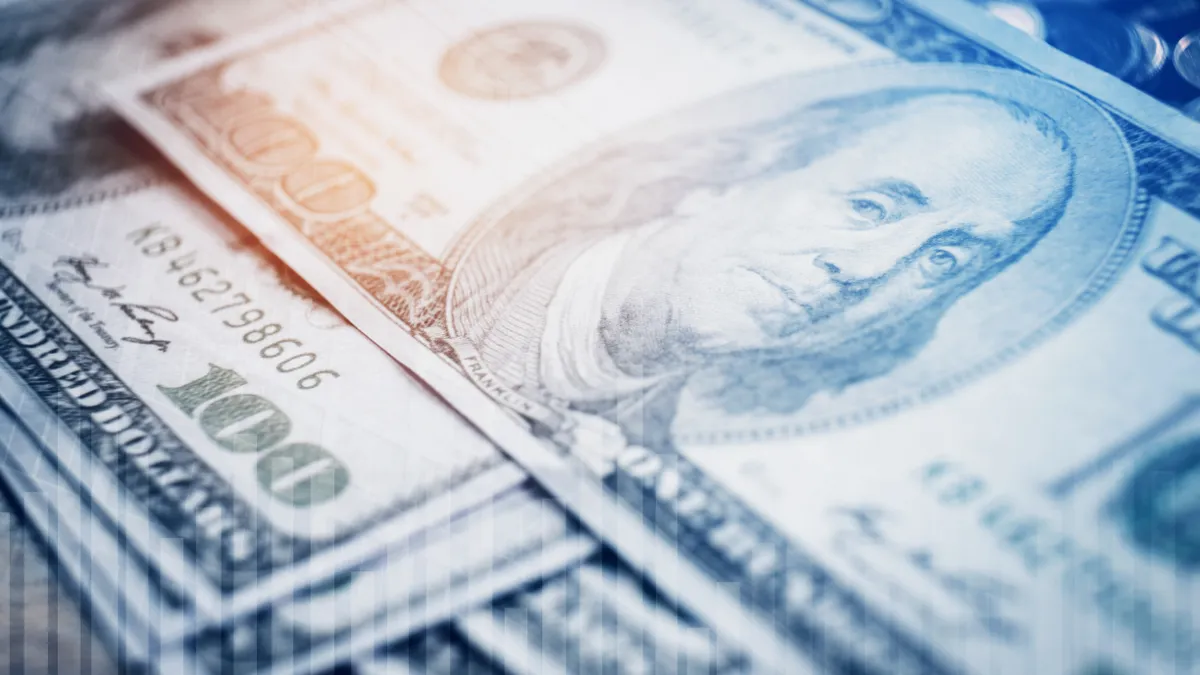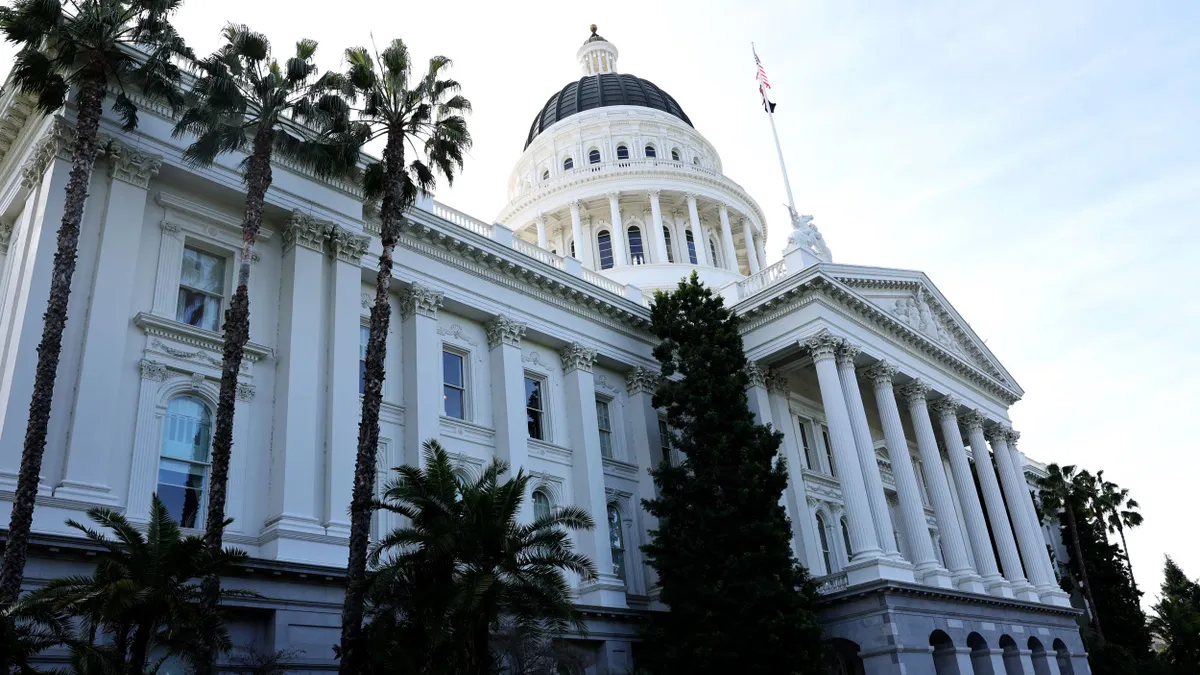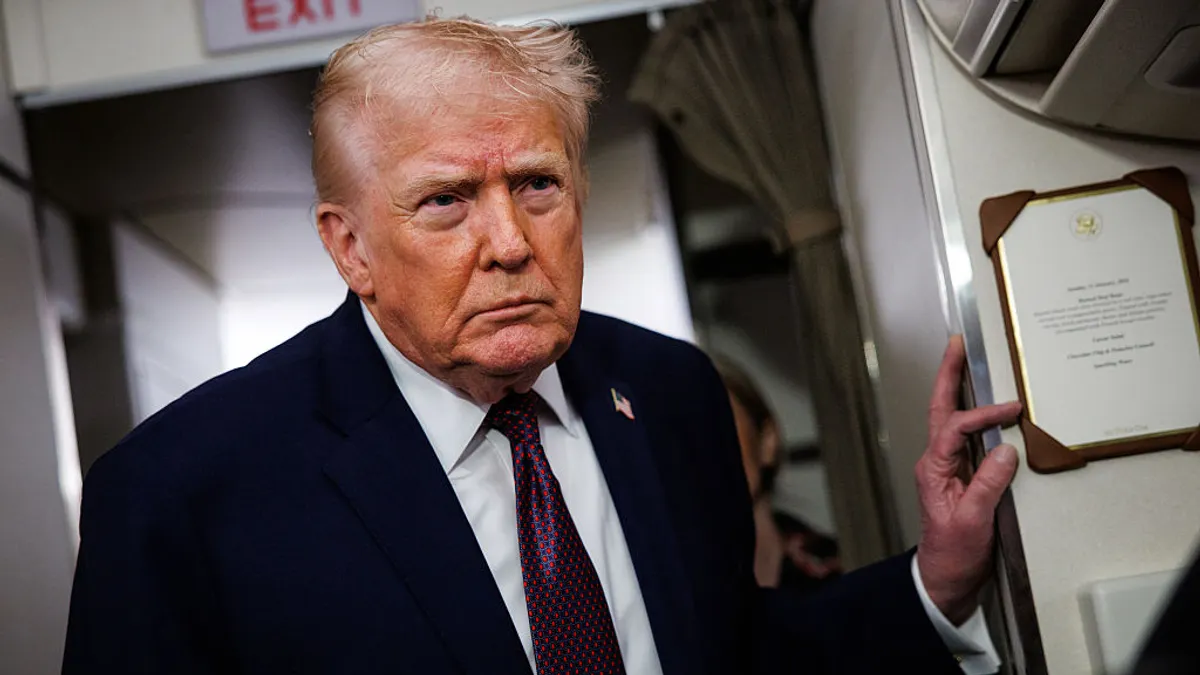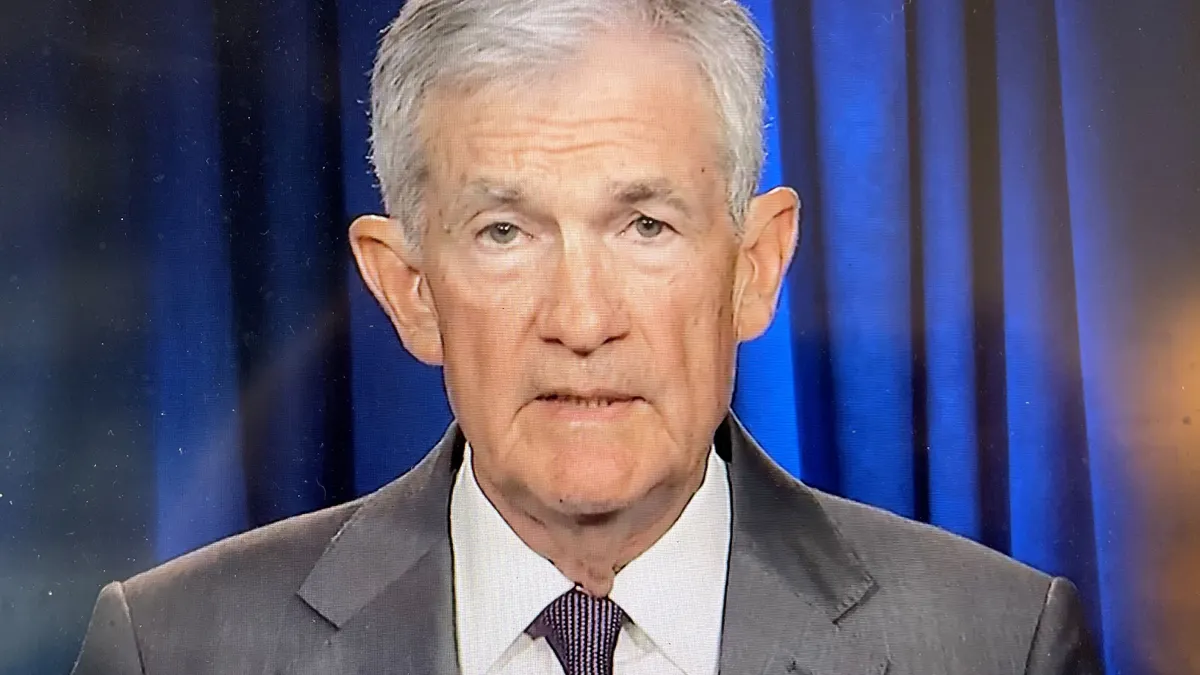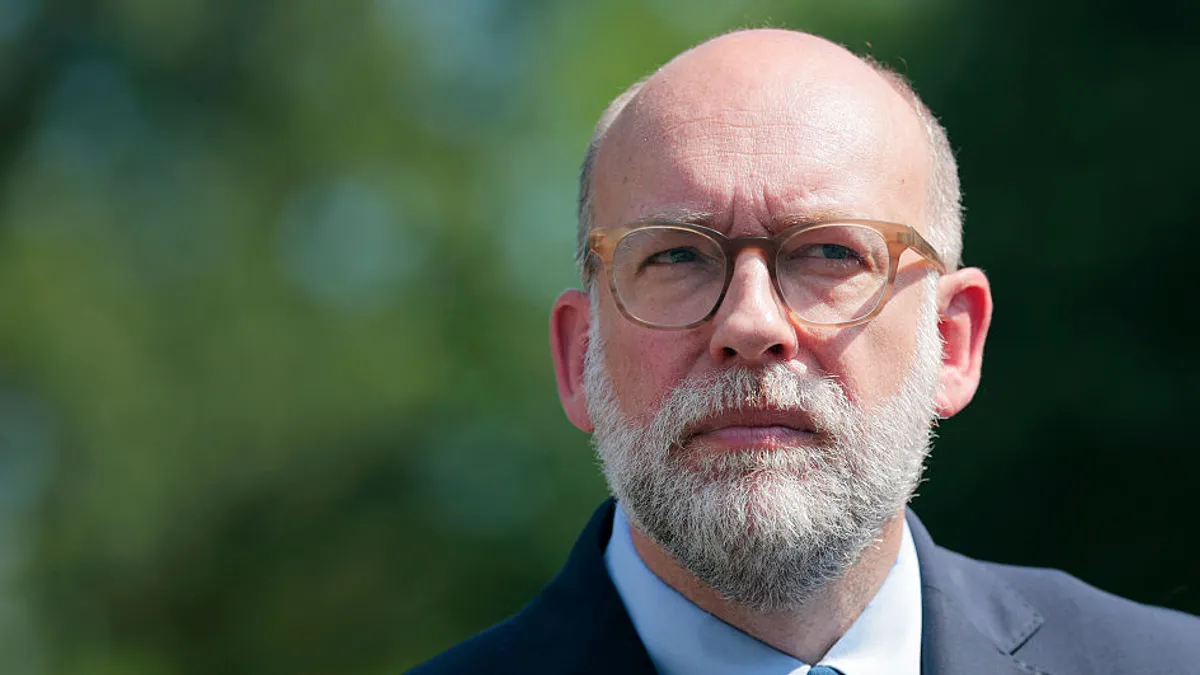Treasury Secretary Scott Bessent plans to comply by Dec. 15 with a conflict-of-interest agreement he entered before joining President Donald Trump’s Cabinet, according to a letter the Office of Government Ethics sent Wednesday to Senate Finance Committee Chair Mike Crapo, R-ID.
Bessent, a former hedge fund manager, was originally due to divest from certain investments or sell assets that may be seen as a conflict of interest by April 28 – 90 days after he was confirmed.
He said he has divested 96% of the agreed assets, according to The New York Times.
Much of what remains unaccounted for is farmland, which Treasury ethics officials described to the OGE as “illiquid and … not readily marketable.”
Bessent owns as much as $25 million worth of soybean and corn farmland in North Dakota – which earns him up to $1 million a year in rental income, according to a financial disclosure form that the OGE made public ahead of Bessent’s confirmation.
However, roughly 70% of North Dakota soybeans are exported to China, William Wilson, a professor at North Dakota State University, told the Times. And Bessent is a key figure in U.S. trade negotiations with the country.
Beyond that, Bessent has disclosed stakes in a private equity fund, a privately held sparkling water company and a privately held clinical stage drug development company.
Bessent told Treasury ethics officials in a June letter that those assets, which he had originally pledged to divest, proved too difficult to sell and that OGE confirmed they did not pose conflicts of interest.
“I initiated the process to find buyers for these private holdings, but all three assets are privately held investments for which there is no liquid market for their resale,” Bessent wrote at the time.
Treasury ethics officials told the OGE “those assets also have significant restrictions on who can acquire them,” adding that Bessent “has been working to divest them since his confirmation in January 2025.”
Bessent is hardly the first finance-focused official to run afoul of conflict-of-interest rules. At least five Federal Reserve officials in the past four years – Chair Jerome Powell, former Vice Chair Richard Clarida, Atlanta Fed President Raphael Bostic, former Boston Fed President Eric Rosengren and former Dallas Fed President Robert Kaplan – have been probed for potential ethics violations.
That led the central bank to issue new rules barring its board governors, 12 regional presidents and senior staff from buying individual stocks, holding investments in individual bonds or agency-backed securities, or entering into derivatives.
OGE will “continue to monitor the status of [Bessent’s] compliance with his ethics agreement,” Dale Christopher, the deputy director of compliance at the office, wrote to Crapo on Monday, before receiving an update from Treasury.
“OGE has also advised Treasury’s ethics officials to emphasize to the secretary that it is his personal responsibility to avoid taking any action that could create a real or apparent conflict of interest with regard to his holdings,” Christopher wrote.
That was not enough for the Senate Finance Committee’s leading Democrat.
“If these guys gave a whit about clearing the stink of corruption off this administration,” Sen. Ron Wyden, D-OR, told The New York Times, “then you wouldn’t have the Treasury secretary picking and choosing which ethics requirements to follow and which to blow off.”
The Campaign Legal Center and the Democracy Defenders Fund filed a formal complaint Wednesday with OGE and requested that the Treasury’s inspector general investigate whether Bessent has violated criminal conflict-of-interest laws in light of his oversight of trade negotiations, along with current regulations on crypto and private equity.
“Secretary Bessent’s continued deferral of his ethics obligations raises serious concerns about whether he is complying with the ethics laws or not,” the groups wrote.
Bessent, for his part, said he is “committed to full transparency and disclosure in my personal finances,” according to a statement seen by the Times and Bloomberg.
“The honor of serving the American people under President Trump can’t be ascribed a dollar value,” Bessent said. “I gladly divested from more than 90% of the assets I was required to sell before I even assumed office.”
The Treasury Department did not respond to requests for comment from Banking Dive.




